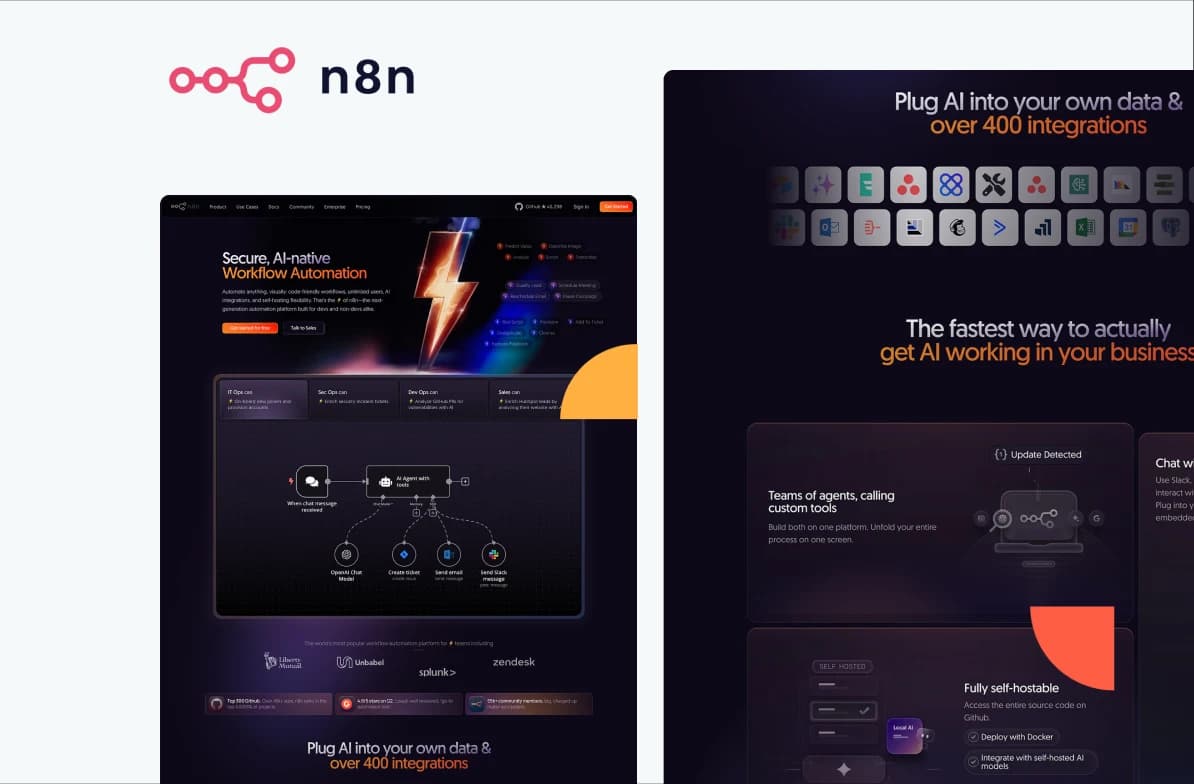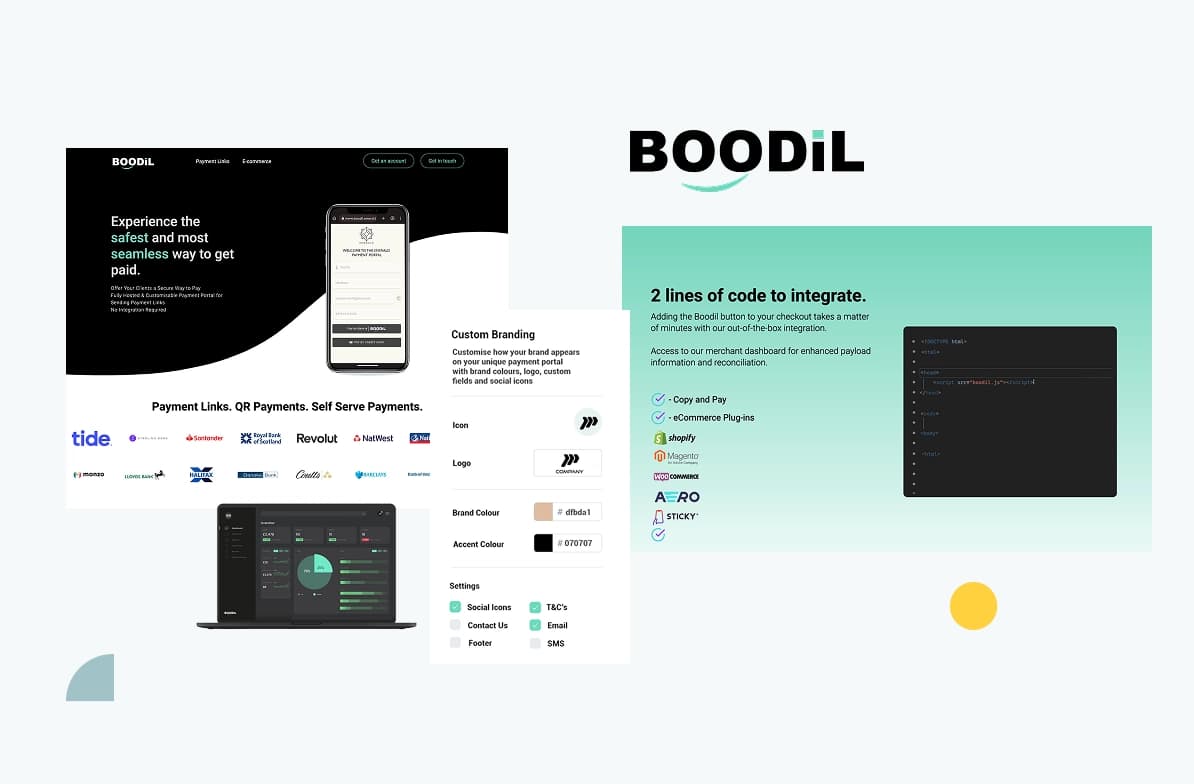How We're Making an Impact, Together
Each project is another story but the ending remains the same.
We empower you with web solutions that are just right for you to move forward.
Case Studies
See the Stories of Our Clients Moving Forward
n8n
Workflow Automation SaaS
n8n sought a scalable web solution for automated API-rich content creation in huge page volumes. The rapid website we created boosted their visibility and product usage while saving tons of time.
5/5
Clutch review
300k
API-driven dynamic pages generated
900%
more Top 10 keywords in 1 year

- Automated custom product configurator for Shopify-run multi-store
Nerdy Banana
Apparel E-Commerce
Nerdy Banana’s manual order processing hindered their efficiency and customer experience. Happily, we helped them increase conversion rates, delivery times, and sales.
Learn more3x
quicker delivery times
95%
production lead time saved
98%
faster file preparation time

- Revitalizing FGS Global's digital presence with Next.js and Storyblok
FGS Global
PR Agency
FGS Global needed a secure, flexible website that captured their brand and scaled with their global presence. We built a fast, headless solution that makes updates effortless and brand consistency simple.
Learn more5/5
Clutch review
Custom
search engine
1500+
content items migrated

- From Liquid to Headless. E‑commerce upgrade with Next.js
Nanobébé
Baby Products E-Commerce
Nanobébé needed a modern, high-converting store to match their global growth. We rebuilt their Shopify site with sleek UX and faster load times. This made shopping easier and more engaging for parents worldwide.
Learn more5/5
Clutch review
117%
increased performance
80%
reduced TBT

- Bridging Shopify with Open-Banking Payments
Boodil
Financial services
We helped Boodil connect its payment solution to Shopify with a secure, scalable app. Now an approved Shopify payment partner, Boodil went from limited reach to serving merchants worldwide.
Learn more3,5M+
stores unlocked
Multi-market
expansion
Shopify
payment integration

12+
Years of experience
4.9/5
Avg. Clutch rate
200+
Successful projects
95%
Delivered in the initial estimate
- From Magento to Shopify: a path to 90% increased day-to-day efficiency
Bronson Labs
Health & Wellness E-Commerce
Bronson Labs wanted to add content, integrations, and special offers more quickly. After we migrated their store, all web changes became easy, cutting maintenance costs threefold.
Learn more5/5
Clutch review
70%
less dev time
3x
lower maintenance costs

- From slow to scalable: the power of a strategic replatform
Capitalise
Business Finance SaaS
Capitalise needed a modern website to replace their rigid legacy CMS and enable data-driven growth. We created a fast, headless platform with built-in A/B testing. Easy to experiment, optimize, and boost conversions.
Learn more5/5
Clutch review
90+
Lighthouse
Robust
A/B testing

- Revitalizing Shopify Plus stores for enhanced brand presence and sales
Carnium Botanicals
Health & Wellness E-Commerce
Carnium Botanicals needed a website to boost customer engagement and revenue growth while managing 9 separate stores. Consolidating onto a single Shopify Plus platform simplified management and maintenance.
Learn more3
New markets
More sales
due to improved UX
12 stores
on one platform

- Fast & scalable custom Vue.js app for improving translation management efficiency
LingoHub
Translation Management SaaS
LingoHub wanted to migrate from Angular to Vue for better scalability and time-to-market. We upgraded the app so they secured key funding and improved key features.
Learn more€600k
funding secured
60%
quicker translation
30+
languages

Clients from NA, EMEA & APAC say we’re committed, results-oriented, and reliable
We combine business focus with a smooth, friendly collaboration. Basically, it makes everything run better.

Stephanie Caponi
E-Commerce Manager at Bronson Labs
The team constantly demonstrated their willingness to help and do more. It’s a huge asset. What’s more, they’re able to easily adjust their workstyles so it comes with an added value.

Kyle Yeager
Digital Director at Beuta
Their approach to user-centric design and practical e-commerce solutions impressed us. They remained focused and on task during the project, maintaining excellent communication with our team throughout.

Polina Medvedieva
SEO Manager at n8n
High skills and responsibility make them a reliable, trustworthy, and professional technological partner. They grasp even the most nuanced details of our requirements and are effective in managing project needs.

Elsa Favario
Marketing Director at Urban
I would highly recommend Naturaily for their commitment to delivering a good product. They demonstrated a strong ability to push for answers that allowed us to fine-tune the CMS to meet our specific needs.

Christoph Batik
CCO at Best IT
Whenever we encountered a challenge, we knew that their creativity and knowledge would allow us to move forward with ease. They were highly determined and successful at adding value.

Matt Edmund
Co-founder of Steadynamic
Naturaily showed their experience in handling very different expectations. I was particularly impressed by their agility in adapting to changes, no matter what project we’ve been working on.

Marta Lesiewska
Founder of Inspired
I felt that Naturaily really cared about creating the website in the best possible way, taking into account time and budget. I appreciate people who can convince me to implement optimal solutions.
Get a quote for your project
Share your goals and timeline. We’ll reply with a clear plan, tech recommendation, and next steps.